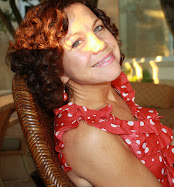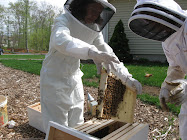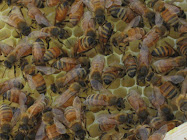There are two books that started me on this journey of sustainability. Taking responsibility for my own choices and how they impact our earth, recognizing that collectively we can make a difference.
The first is Serve God Save the Planet, by Dr. Matthew Sleeth. Where he challenges the old view of Christians that there was little need to care for the earth and points out that in the beginning God did entrust the earth to our care. And, when we sabotage land and resources that others depend on for life, that's not really loving our neighbor . . . is it? Ignorance is not a "get out of jail free card" we should be responsible and learn about how the choices we are making are effecting the lives of others. For example, have you ever researched the impact of unsustainable coffee farming on their local communities? Suddenly that Folger's doesn't taste very good . . . even if it's cheap!
Dr. Sleeth writes: "Serve God, Save the Planet is meant to elicit personal accountability rather than political change. Its lessons are meant to teach individuals, families, and communities not much larger than a congregation; and yet it looks at larger issues because they profoundly affect each of us."
"I am convinced that when the church becomes fully engaged in the problems of creation care, we will overcome seemingly insurmountable odds. As all those who consider themselves people of faith grow in their understanding that God holds us accountable for care of his creation, we will begin to see positive changes on an unprecedented scale."
It was in this book that I learned about hanging out my laundry to dry and the environmental importance of growing our own food. Then . . .
I read Animal, Vegetable, Miracle by a favorite fictional author of mine, Barbara Kingsolver. It documents her family's journey to eat local food that they either grew themselves or purchased from local farmers. Why? What is the point? The bottom line is that factory farming is destructive to our environment and lowers the quality and taste of our food. In addition, schlepping all of our foods from all over the world is a huge waste of fuel and a big contributor to pollution. This was a profound book for me. Eye opening. I loved it. After reading these two books I started changing . . . and planning!

So, how are we doing? Here is our progress:
We started composting
We started recycling - everything!
We put in a large back yard garden, eliminating a large plot of grass that was largely unused and had to be mowed, eliminating mow time and gas usage.
We have made an effort to grow a variety of things that are "ready" at different times of the growing season and that "keep" -- this year is my first effort at growing winter squash, and last year my leeks were a huge success! The garlic I planted last fall is looking good so far . . .
We planted perennial plants like asparagus, strawberries and rhubarb.
We put in a small orchard including 3 apple trees, 2 pear trees, 2 peach trees, 6 blueberry bushes, 1 apricot tree, 1 cherry tree.
We tamed and pruned a wild blackberry patch.
We will be planting a new raspberry patch.
We will be keeping our own honey bees, which will help with pollination (a bit of a problem last year) and eventually will provide us with local natural honey! Our bees come on April 27th!
We started buying milk from a local dairy, with an old fashioned milk man and glass bottles.
We purchase our pork and beef almost exclusively from a local Rehoboth farmer.
We purchase our eggs from another local Rehoboth farmer, large beautiful Rhode Island Red eggs.
We started making our own household cleaners without all of the nasty chemicals that come along with the store bought varieties -- plus the savings has been huge.
We hang our clothes out to dry -- unless I have a major back log, which I've been struggling with recently (and our electric bill shows it!).
How is your journey?






























1 comment:
Sounds like you have made a lot of progress. I'll have to read the first book you mentioned. It seems as if it would reaffirm a view I have held for a long time, that God desires for us to respect and care for the environment he has given us to live in.
Post a Comment